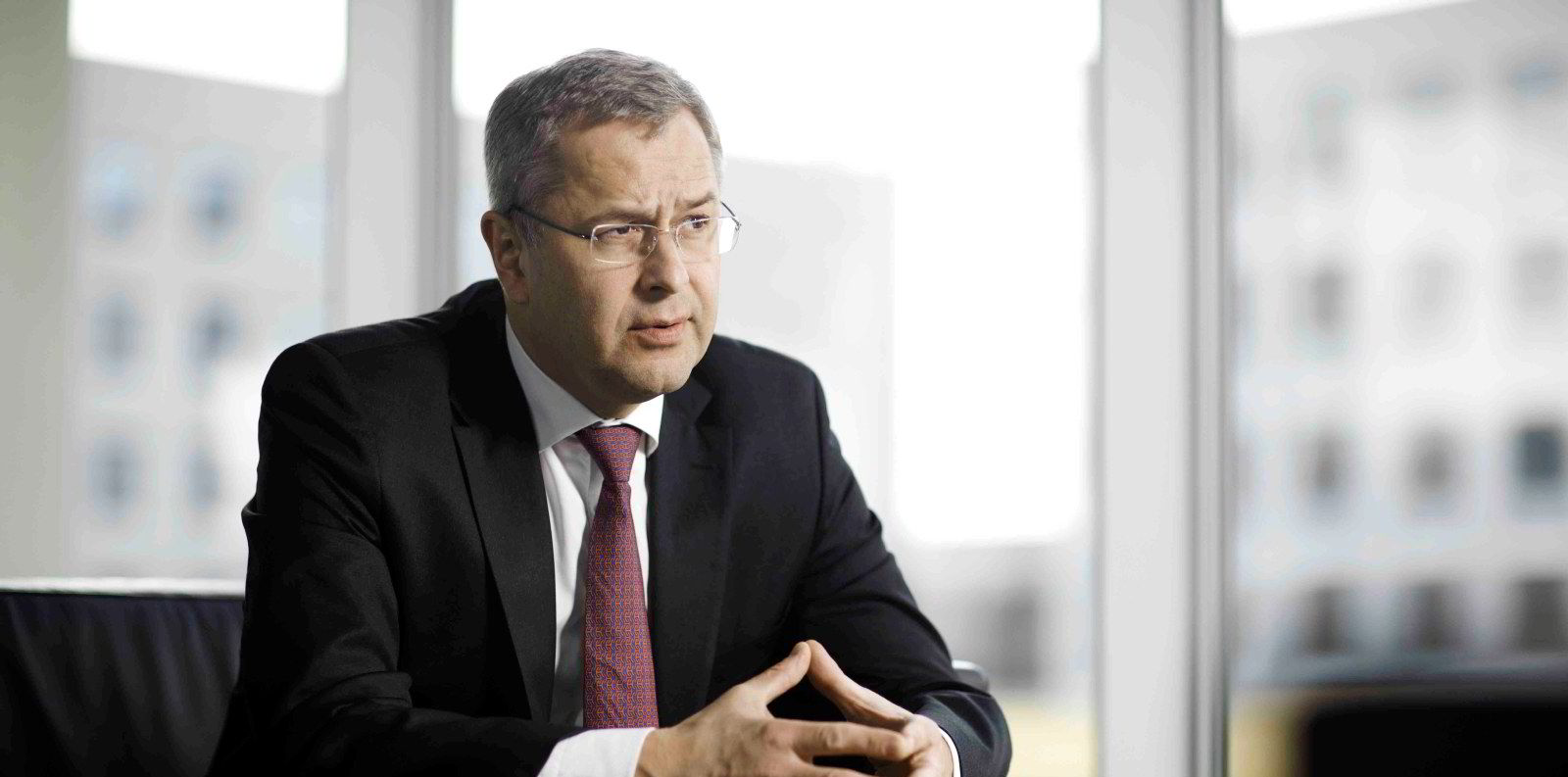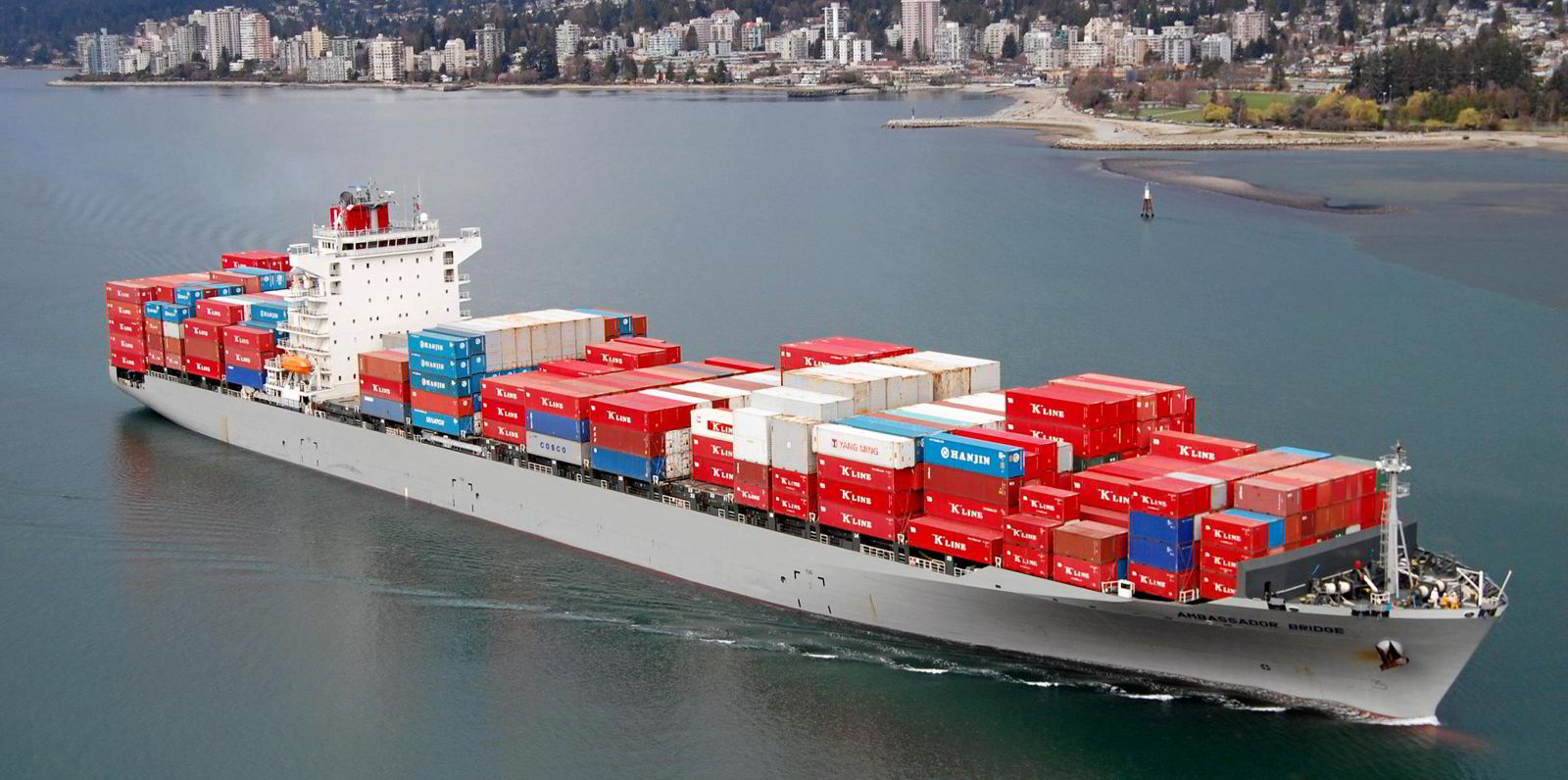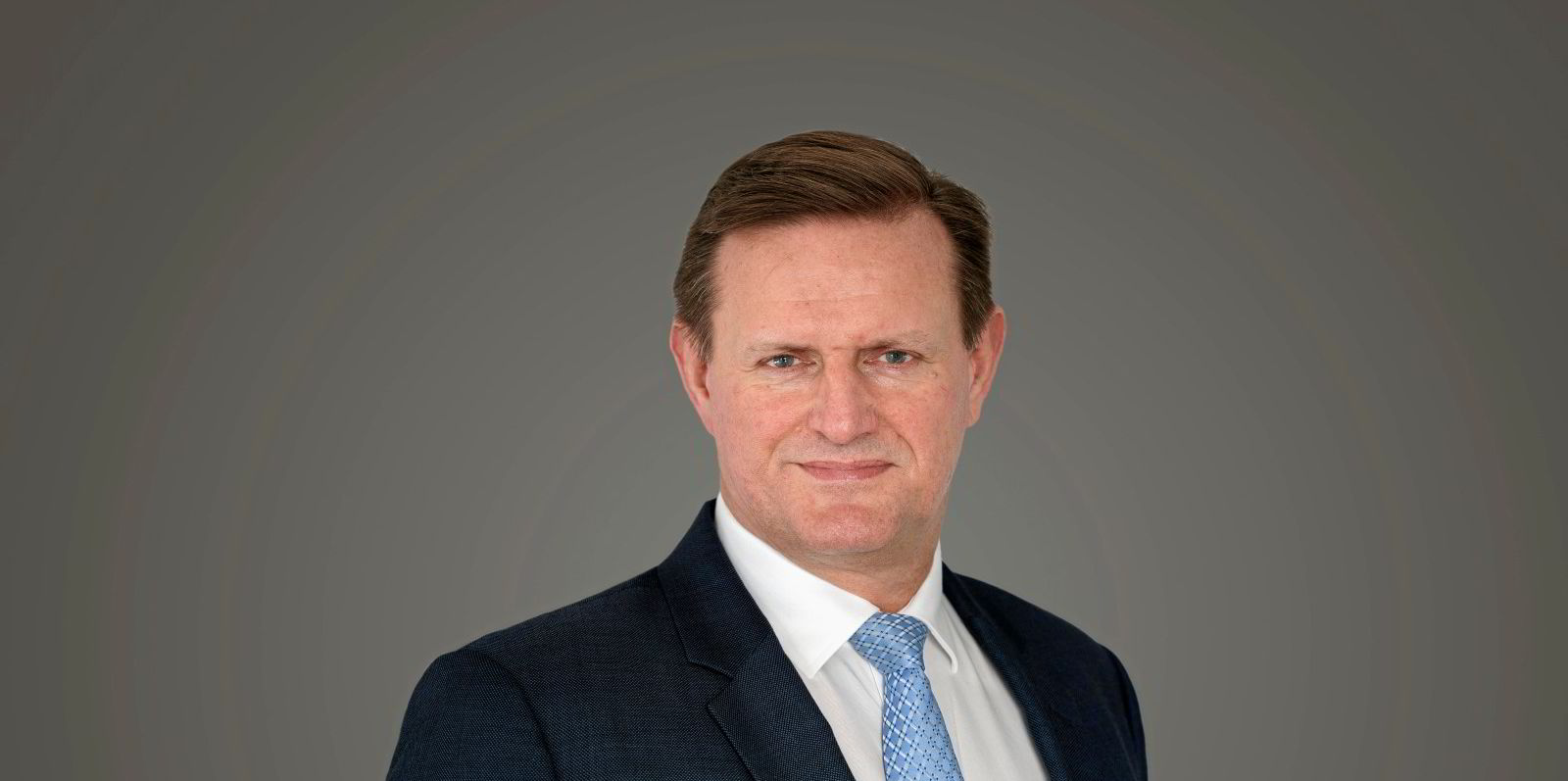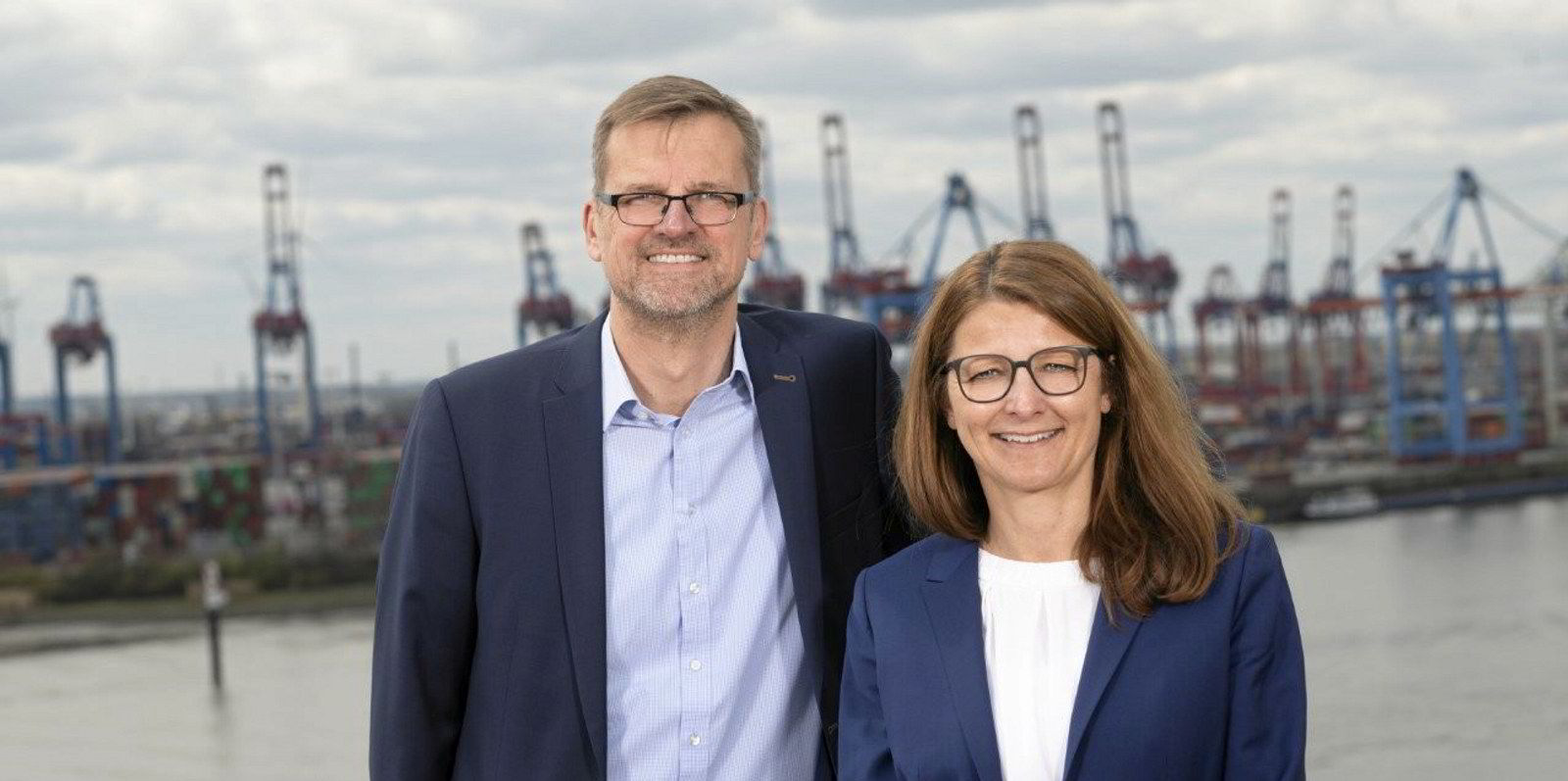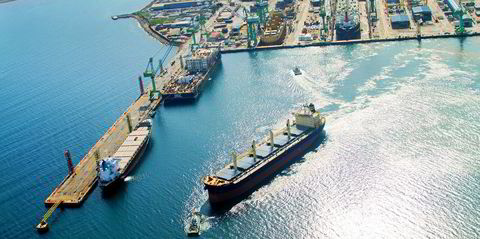Denmark's AP Moller-Maersk is using massive earnings from booming boxship markets to buy back more of its shares.
The giant shipowner said it will repurchase stock worth up to DKK 31bn ($5bn) over two years, as well as finishing the current DKK 10bn buyback programme earlier than originally planned.
The company is swimming in cash - $6.4bn - having announced a record net profit of $2.7bn for the first quarter on Wednesday, up from $209m a year ago.
Revenue jumped to $12.4bn against $9.6bn in 2020.
The group will now repurchase the remaining DKK 6.7bn of shares from the DKK 10bn buyback by this September, instead of March 2022, and then start the new one, which represents more than 10% of its market cap.
The move is "supported by the strong earnings and free cash flow generation seen in both 2020 and 2021", Maersk said.
Debt disappearing
This has led to further "significant" deleveraging such that the owner is now debt-free on a net interest-bearing debt level, excluding lease liabilities, the company added.
"The share buyback is carried out with the primary purpose to adjust the capital structure of [Maersk] and secondly to meet obligations under long-term incentive programmes," the company added.
Parent AP Moller Holding will sell A and B shares to the company pro rata to its ownership.
Chief executive Soren Skou called the first quarter performance "exceptionally strong".
Profit for the period almost equalled the earnings for the whole of 2020.
"Strong demand combined with bottlenecks, lack of capacity and equipment shortage in the global supply chains drove freight rates up significantly," Skou added.
Profit almost trebles
In the Ocean division, Ebitda almost tripled reflecting strong volumes, significant increases in freight rates and lower bunker fuel prices. Ebit hit $2.7bn.
The boxship market experienced significant distortion of demand caused by the ongoing pandemic, Maersk said.
"Higher demand, mainly on head-haul volumes from exports out of Asia, triggered significant bottlenecks which in turn implied a sharp increase in short-term rates and contract renegotiations," the company added.
The average loaded freight rate increased by 35% to $2,662 per feu.
Clarksons Platou Securities analyst Frode Morkedal said earnings were in line with Maersk's guidance, with $2bn of the $4bn group Ebitda coming from the "current extraordinary market conditions."
Maersk is forecasting this situation to continue well into the fourth quarter.
Coverage increases
Long-term fleet coverage has increased from 50% to 55%.
"This is likely to be viewed as positive since it secures longer term stability," Morkedal said.
"We also note that unit costs were lower than expected, indicating perhaps that the expected cost inflation is less than feared," the analyst added.
Maersk has hiked its full-year Ebitda forecast to between $13bn and $15bn, up from between $8.5bn and $10.5bn previously.
Petter Haugen at Kepler Chevreux said the company is using the current market strength to lock in longer-term profits through charter coverage.
"While it lowers the impact from potential further increases in container spot rates, it obviously improves the visibility from 2022, which we believe will be welcomed by investors," he added.
